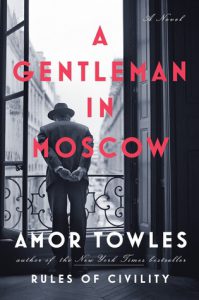A Montaigne Trapped in His Tower with Nothing to Say
Review by Rea Keech
Having taken an accustomed seat in my worn leather chair, its polished surface as always conjuring up wistful memories of the familial heritage which was its origin, I set out to indulge myself in the much anticipated diversion of reading this considerably lauded tome. It not being my custom to peruse a work of imagination without preparing refreshment in advance, I had graced the diminutive table neighboring the chair with a mug of coffee which, although of the instant variety, I had reason to expect would compensate for its admitted lack of aroma and taste by providing a satisfying condition of alertness. The gleaming aisles of the historic Giant supermarket had earlier put on display rows of fruit offered at a reduced price (today strawberries), and before opening the book I took one of these Fragarian delights in hand, liberating the stem from the firm, ruddy berry with the tip of a neatly trimmed fingernail. The venture was about to begin.
Not unlike Dante being led through the inferno, then purgatory with the promise of ultimately reaching the Beatific Vision, I tread metaphorically onward, leafing from recto to verso expectantly. If asked in advance whether description of food, drink, furniture, and clothes representing a past era in a far-away country would be of interest, I would have responded without hesitation in the affirmative. If asked whether prose affecting a cultured, outdated, aristocratic style is more appropriate to a story intended to be laughed at than taken seriously, I might have agreed, with the proviso that grandiloquence can possibly be tolerated if the story itself is of interest.
Having read nearly half the book, I must admit to the stirring of a fear that I had in hand a novel about eating meals in a restaurant and getting haircuts. Never one to despair, however, and forging on, I arrived at the realization that this is a novel about eating meals in a restaurant and getting haircuts, as well as sewing a button on a coat, juggling oranges, and playing hide-the-thimble. Count Alexander Ilyich Rostov is unwaveringly more interested in the recipe for a bouillabaisse or the vintage of a wine than the plight of millions in his country starving and being put to death in the Stalinist regime.
The power of my instant beverage notwithstanding, it must be admitted that Morpheus at times contrived to cast his soporific spell upon me. And yet my somnolescence was surprisingly dissipated to a degree when on the three hundred eighty-ninth page of this four hundred sixty-two page novel some semblance of what might traditionally be called a plot began to murmur its trepidatious, embarrassed undertone. Imagine one’s delight when a character who, some might unkindly say, has had stick securely lodged in his evacuatory canal for the majority of the novel, stirs into action.
Throughout the novel, the Count is presented as a Montaigne trapped in his tower with nothing to say. A token of the aristocratic world left behind by the advent of Bolshevism, he eats and drinks and remains true to his gentlemanly origin, patriotic and proud of Russia no matter what it has become. When he now and then thinks about matters other than décor and propriety, although we are not told this directly, he seems concerned about how one is to view the Communist attempt to destroy the art of the past in order that a new egalitarian art and social order can take its place. Perhaps it should not be a matter of surprise that it is an American visiting the hotel who pronounces the answer to the Count’s conundrum: “grand things persist.”
Oh.


I gather you thought it was a bit overwritten.
The book is far better than your effort at describing it (you do a slightly better if thin description of your Giant supermarket coffee). You clearly neither understand Montaigne nor Russia. Good luck to you in your journey in letters.